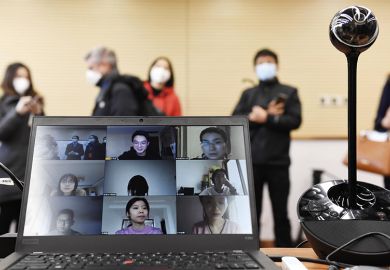Australian students who accept part-time jobs to cover their costs and jump-start their careers could find themselves facing criminal prosecution amid a crackdown on essay mills.
The country’s higher education regulator has warned that students who take jobs touting “online study platforms” could render themselves liable for up to two years’ imprisonment and fines of A$110,000 (£61,000).
“Advisory statements” from the Tertiary Education Standards and Quality Agency (Teqsa) caution students to tread carefully over job advertisements from the platforms, which have shown “large growth” in recent years. “Some of these websites may promote, enable or supply commercial academic cheating services,” the notices warn.
“Under Australia’s anti-cheating laws, the promotion or sale of academic cheating services is illegal. Students employed to promote a website could face criminal penalties if the website is found to be breaking Australian law.”
The warnings come as Teqsa moves to assert the power it inherited following last August’s passage of a bill to prohibit academic cheating services. They coincide with a wave of advertisements seeking paid “campus representatives” for Course Hero, a California-based “educator community” that offers a “Netflix-like subscription” to more than 60 million course, tutoring and support resources.
The company, which invites users to “subscribe or contribute their own resources”, wants to employ students at 12 Australian universities and dozens more in the US. The job involves hosting “networking” events to “educate students about Course Hero incentives and products”, as well as supporting “social good initiatives” such as a programme that donates books to Gambian schools.
“This role is ideal for enrolled students who are looking for a flexible work opportunity…[and] interested in sales or event planning,” the advertisements say. “We provide opportunities to develop and refine your sales, networking, communication, management, and leadership skills.
“You’ll be well-equipped with the skills and business knowledge needed to succeed in your future career. We offer personalised career advancement resources to stellar representatives including, but not limited to, letters of recommendation and references for future jobs or applications.”
Course Hero said it was a “crowdsourced learning platform”, not a cheating service. “We expect and work hard to ensure users act with academic integrity,” a spokeswoman said.
“Since our founding in 2006, Course Hero has taken numerous steps to address concerns about academic cheating and copyright infringements that inevitably arise with an open platform. Course Hero does not tolerate copyright infringement, plagiarism or cheating of any kind and employs a range of preventative measures and investigation and enforcement policies.”
She said the organisation complied with local regulations, including in Australia, and that its campus representatives were bound by copyright and academic integrity policies.
Teqsa’s advisory statements follow revelations that essay mills are luring unsuspecting students by hacking universities’ support services web pages and running fake essay contests to “harvest” students’ work for on-selling.
The advisory notes say students who have been offered on-campus promotional jobs should “speak with their institution first to determine if the company is permitted to operate on their campus”. Teqsa counsels students to “never share your work online, as it may be sold by cheating services to other students”.






